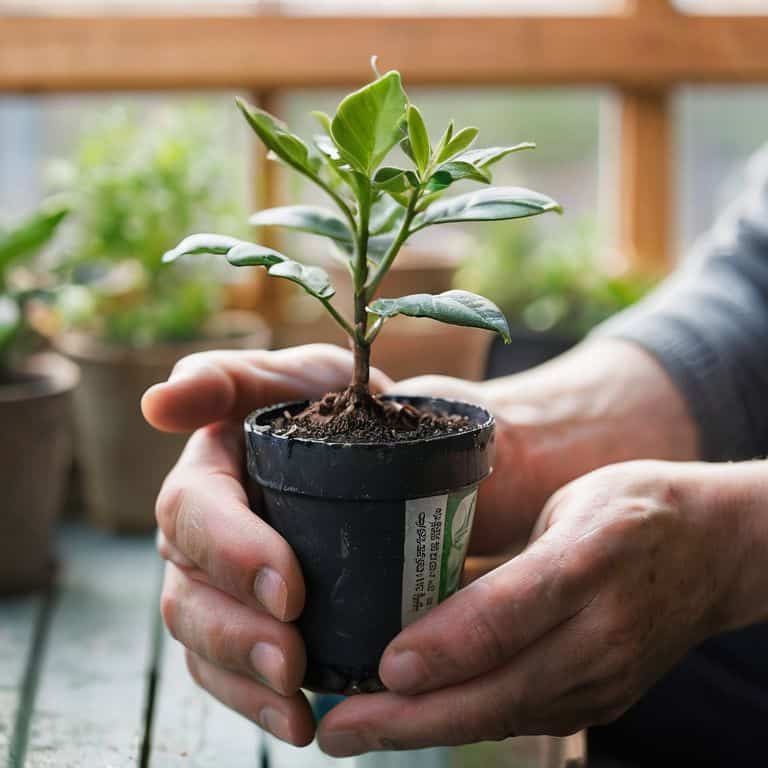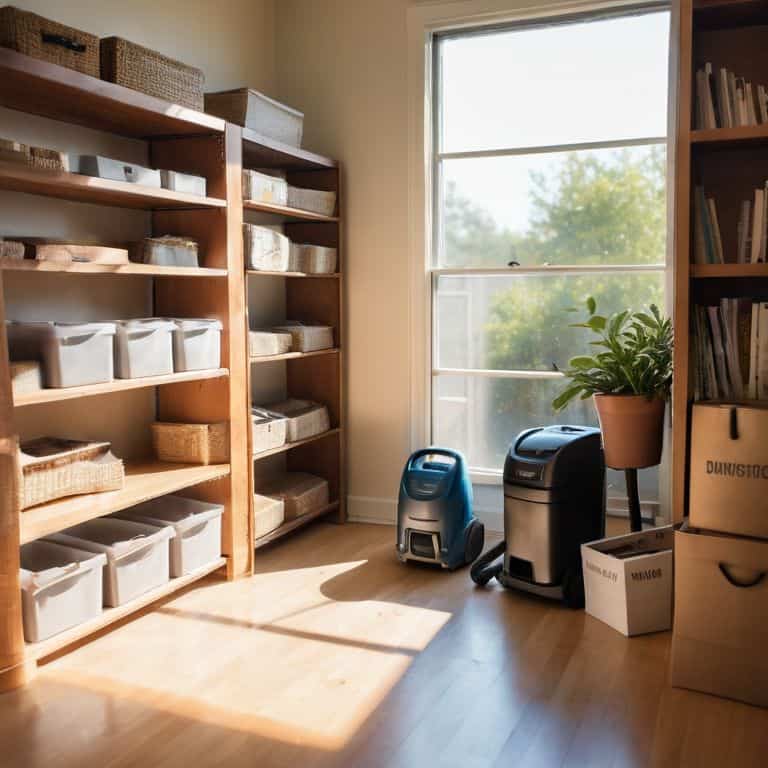As I sit in my serene, clutter-free home, surrounded by the gentle scent of bonsai trees and the soothing sound of ambient music, I’m reminded of the countless times I’ve helped clients tackle the daunting question of what to do with unwanted items after decluttering. It’s a topic that’s often shrouded in complexity, with many so-called “experts” touting expensive storage solutions or tedious sorting systems. But I’m here to tell you that it doesn’t have to be that way. In my experience as a professional organizer, I’ve found that the key to successfully dealing with unwanted items is to approach the task with a clear mind and a simple, logical system.
My goal is to share with you the same no-nonsense advice that I’ve shared with my clients, advice that’s rooted in my background as a certified professional organizer and my passion for creating peaceful, functional spaces. I’ll walk you through the process of turning unwanted items into opportunities for a fresher start, and provide you with practical tips for making the most of your newly decluttered space. By the end of this article, you’ll have a clear understanding of how to create a home that calms your mind, and you’ll be well on your way to turning your living space into a true sanctuary. So, let’s get started on this journey together, and explore the simple, yet powerful strategies for dealing with unwanted items after decluttering.
Table of Contents
What to Do With Unwanted Items

As I always say, every object should have a purpose or a place. Once you’ve decided what to keep and what to let go of, it’s essential to consider the fate of your unwanted items. Instead of simply throwing them away, think about creative ways to repurpose old items. You might be surprised at how a little creativity can breathe new life into something that was once destined for the landfill.
Donating to local charities is another great option, and it’s a wonderful way to give back to your community. Not only will you be supporting a good cause, but you’ll also be reducing the environmental impact of improper waste disposal. Plus, you might even be eligible for a tax deduction. If you’re not sure where to start, look for charities in your area that accept donations of gently used items.
For items that are still in good condition but no longer serve a purpose for you, consider hosting a garage sale or selling them online. There are many tips for selling items online safely, such as using reputable platforms and being cautious when dealing with strangers. By taking the time to find a new home for your unwanted items, you’ll not only be decluttering your space, but also reducing waste and living more sustainably.
Benefits of Donating to Local Charities
As we consider what to do with unwanted items, donating to local charities stands out as a particularly rewarding option. By giving to those in need, we not only clear our own space, but also contribute to the well-being of our community. This act of generosity can have a profound impact on our mental state, fostering a sense of connection and compassion.
Donating to local charities can also have a profound effect on our emotional well-being, as it allows us to let go of possessions while still feeling a sense of purpose and control. By knowing that our items will be used to benefit others, we can more easily release our attachment to them, creating a sense of freedom and lightness in our homes.
Creative Ways to Repurpose Old Items
As we explore the possibilities of what to do with unwanted items, it’s essential to consider breathing new life into old things. This approach not only reduces waste but also fosters creativity and resourcefulness. By repurposing items, we can transform them into something that serves a new purpose, giving us a sense of accomplishment and satisfaction.
One of the most rewarding aspects of decluttering is discovering hidden potential in items we thought were useless. An old wooden ladder can become a unique bookshelf, while a vintage suitcase can be turned into a one-of-a-kind coffee table. These creative transformations can add character to our homes and serve as a reminder that everything has a story to tell.
Beyond Decluttering Disposal Methods

As we delve into the world of decluttering, it’s essential to consider the environmental impact of improper waste disposal. When getting rid of unwanted items, we must think about the consequences of our actions on the planet. This is where responsible disposal methods come into play. By choosing to donate, recycle, or repurpose, we can significantly reduce the amount of waste that ends up in landfills.
One often overlooked aspect of decluttering is the disposal of electronic waste. Electronic waste disposal methods require special attention, as they can contain hazardous materials that harm the environment if not handled properly. It’s crucial to research local facilities that accept electronic waste and follow their guidelines for responsible disposal. By doing so, we can ensure that our actions are not only benefiting our homes but also the environment.
When it comes to items that are still in good condition, creative ways to repurpose old items can be a great way to breathe new life into them. This approach not only reduces waste but also allows us to think outside the box and find innovative solutions for everyday problems. By adopting this mindset, we can turn the process of decluttering into an opportunity for growth and self-expression, ultimately creating a more harmonious and sustainable living space.
Environmental Impact of Improper Waste
As we consider the fate of our unwanted items, it’s essential to think about the environmental consequences of our actions. The way we dispose of waste can have a significant impact on our planet, from contributing to landfill waste to polluting our oceans.
Improper waste disposal can lead to harmful emissions, affecting not only our environment but also our health.
Sustainable Online Selling and Donation Tips
As we explore the world of online selling and donation, it’s essential to consider the environmental footprint of our actions. When selling items online, we can reduce waste by ensuring that our packaging is minimal and made from recycled materials. This not only helps the planet but also appeals to the growing number of eco-conscious consumers.
To make the most of online selling and donation, I recommend researching reputable platforms that align with your values and goals. Look for websites and apps that specialize in second-hand items and have a strong focus on community and sustainability. By choosing the right platform, you can ensure that your unwanted items find a new home while also supporting a more circular economy.
From Chaos to Serenity: 5 Essential Tips for Managing Unwanted Items
- Consider the ‘one in, one out’ rule to maintain your newly decluttered space and prevent future accumulation
- Explore creative repurposing options for old items, such as turning old furniture into planters or creating a headboard from reclaimed wood
- Donate gently used items to local charities, not only to support your community but also to claim potential tax deductions
- Research and utilize online platforms and local resources for sustainable selling and donation, ensuring your unwanted items find new homes and reduce waste
- Schedule regular ‘maintenance decluttering’ sessions to reinforce your commitment to a clutter-free life and continually assess the purpose and place of each item in your home
Key Takeaways for a Clutter-Free Sanctuary
Embracing the concept that every object should have a ‘purpose or a place’ can significantly simplify the decluttering process and lead to a more serene living environment
Repurposing old items creatively and donating to local charities not only reduces waste but also fosters a sense of community and can have a positive impact on mental well-being
Adopting sustainable disposal methods, such as online selling and environmentally responsible donation practices, is crucial for minimizing the environmental impact of decluttering and contributing to a healthier planet
Embracing the Freedom of Letting Go
As we release the physical weights that no longer serve us, we create space for the mental clarity and emotional freedom that allows us to truly thrive in our sanctuary, our home.
Nathan Reed
From Clutter to Clarity: A Journey of Transformation

As we’ve explored the world of decluttering and disposing of unwanted items, it’s clear that this process is about more than just getting rid of stuff. It’s about creating a space that reflects our true selves and fosters a sense of serenity. We’ve discussed creative ways to repurpose old items, the benefits of donating to local charities, and the importance of considering the environmental impact of our disposal methods. By embracing these strategies, we can transform our relationship with our belongings and cultivate a more mindful approach to consumption.
As you close this chapter on clutter and embark on a new journey of organization and intention, remember that every item in your home should have a purpose or a place. By embracing this mantra and letting go of the rest, you’ll be free to create a space that truly feels like a sanctuary. So, take a deep breath, step back, and admire the sense of calm that fills your newly decluttered home – and know that this sense of peace will stay with you long after the dust has settled.
Frequently Asked Questions
How can I ensure I'm making the most eco-friendly choices when getting rid of unwanted items?
To make eco-friendly choices, consider the item’s material and potential for reuse. Ask yourself, can it be repurposed, donated, or recycled? Choose options that minimize waste and support local recycling programs or charities, reducing the environmental footprint of your decluttering process.
What are some creative ways to repurpose old items that might otherwise end up in a landfill?
I love this question. For me, repurposing old items is a fun challenge. Consider turning old pallets into planters, mason jars into pendant lights, or faded t-shirts into reusable bags. You can also upcycle old furniture with a fresh coat of paint or new hardware, giving it a second life and reducing waste.
Are there any tax benefits or incentives for donating unwanted items to local charities or thrift stores?
Yes, donating to local charities can have tax benefits. In many countries, donations to registered charities are eligible for tax deductions, which can help reduce your taxable income. Keep receipts for your donations, as these can be used to claim deductions when filing your taxes. It’s a win-win: you’re supporting a good cause and potentially lowering your tax bill.
